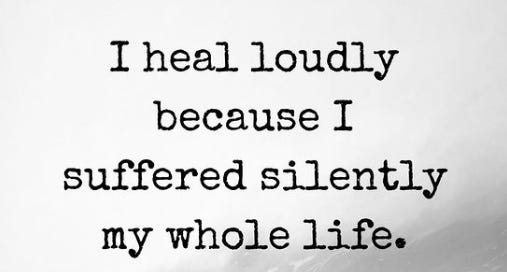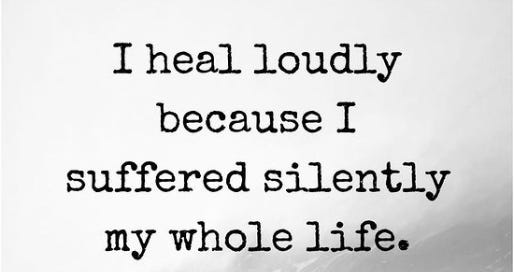“What am I even doing here?”
I’ve often asked myself this question, albeit typically in my 20s, following a particularly eventful night out. (Sorry, Mom!)
But the question has reemerged recently as I tease out my role with Grumpy Combat Veteran + Friends.
Don’t get me wrong: I know I have value in this space. Where Will dreams big, I’m right behind him, trying to turn that dream into a reality. The team knows they can rely on me, and I bring a unique blend of communications, legal, and humanitarian experience to the table. Most importantly, Will wants me here, and I will never abandon my brother. (United States Government: take note.)
Yet the fact remains that Will is the primary draw for GCV+F right now. He spent approximately 20 years in the Air Force, having served in Iraq and Afghanistan for nearly 1500 days at the tactical, operational, and strategic levels. He writes with equal parts candor and passion, with incisive and well-informed analyses. Plus, he’s got a mean Texas drawl and a super cute kid—the total package, in his own words.
So, I’ve spent many hours these past few months wondering where I fit in.
The answer came to me recently as Beth Bailey, one of my favorite storytellers and humans. She hosts The Afghanistan Project Podcast, and we were interviewing her for an episode of Shoulder to Shoulder. You should take listen – always when Beth is the one speaking.
She was discussing a conversation with a recent guest, Rob Dufresne, about the challenges of military separation and the unjust expectation—both in military culture and otherwise—that we keep our struggles to ourselves. After all, healing can be chaotic and uncomfortable, and we don’t want to give someone a reason to think we’re weak or even broken.
Rob steadfastly rejects this premise, instead choosing to “heal loudly.”
As soon as I heard that phrase, things shifted into focus. I’m the teammate who helps people to heal loudly.
In retrospect, I should have seen it sooner. I first began experiencing the symptoms of depression before I was a teenager; by 2021, I’d also fallen victim to an all-consuming panic disorder.
Until that point, I hadn’t been particularly transparent about my mental health. I’d been raised in a family where mental health wasn’t something to be talked about but rather hidden—an obvious point of shame.
By 2021, I no longer had that option. My panic disorder was so severe that I’d spend days in a panic attack, dizzy to the point that I’d nearly lose consciousness even when lying down. So, I took to social media partly for my survival; I couldn’t afford to leave my home without knowing someone was tracking my location and status.
But it quickly became much more than that. In giving myself permission to talk about my symptoms and their impact on my life, I was inherently removing the shame I’d been taught to feel.
I gave myself permission to heal.
And then an incredible thing happened. I was surrounded by people who were grateful for my candor because it gave a lens to an experience that closely reflected their own. In healing loudly, I was implicitly offering permission to others to do the same.
This became a core principle in my work as the former Director of Resilience Programming for the #AfghanEvac coalition. Truthfully, I wasn’t the most natural fit for this position. I lack formal training or education in mental health.
But if I can tout any success in my work with the volunteers, it’s this: I offered them permission and a safe space to talk openly about their experiences.
It was a necessary role. Volunteers were suffering from secondary trauma, burnout, compassion fatigue, and especially moral injury (a recent study shows that the U.S. withdrawal from Afghanistan exacerbated moral injury diagnoses among veterans, 41 percent of whom now display relevant symptoms). We filled a critical gap in the conversation about volunteers’ mental health, a gap which was largely created by the government’s absolute unwillingness to acknowledge the harm it had caused to volunteers and Afghans alike.
And that’s where my path and Will’s converge: in a shared commitment to promoting the mental health of each community we touch. My role at GCV+F has always been clear: I am the heart that will beat mental health support into every artery of our work.
We’ve already laid the foundation for this work. Our organizational values and tagline (“Let’s talk about it”). It’s present in how we lead our team and work together as Co-Founders. And it’s present in our programming as we prepare to launch a virtual support group for servicemembers and veterans suffering from moral injury—one of the first groups of its kind.
So come join the GCV+F community. We offer invaluable services, from breaking stories to inspired political analyses . . . and a metaphorical megaphone through which you can heal loudly. I guarantee it.
Until next time.





Oh Kate!! You are most welcome here!! Like most of us who love Will we are wounded souls who are healing right along with him. I was initially drawn to his Substack just by his title alone. 😁
I have learned so much from him and his writings. As a sexual assault survivor (more than once, starting at age 15) with ptsd I have learned about moral injury plus so many other things about this Country we all love. I work with other Vets in my work as a Political Activist and Will has taught me so much!! I, too, have mental health issues.
I welcome you and look forward to learning from you as well!! Going to go listen to your New Podcast right now. Thank you for ALL you have done in service to our Country and continue to do!!! ❤️🇺🇸💙
Love this!